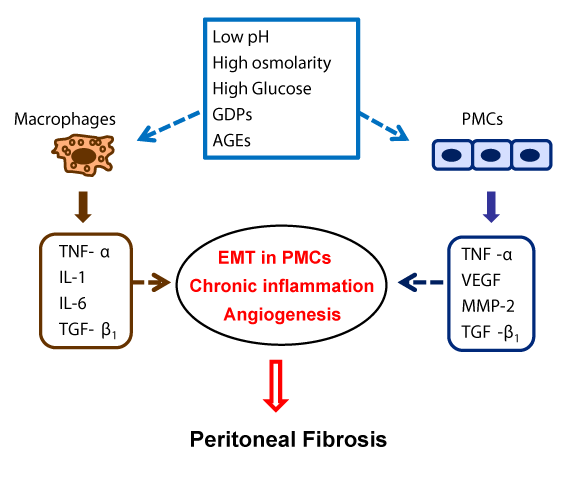
 |
| Figure 1: The mechanisms of peritoneal fibrosis. When stimulated by various factors, peritoneal mesothelial cells (PMCs) and macrophages produce various proinflammatory cytokines and growth factors. These products induce epithelial-mesenchymal transition (EMT) in PMCs, chronic inflammation in the peritoneal cavity and angiogenesis. These processes promote fibroblast proliferation and collagen synthesis, which lead to the progression of peritoneal fibrosis (PF). GDPs: glucose degradation products, AGEs: advanced glycation end-products, TNF-α: tumor necrosis factor-alpha, IL: interleukin, TGF-β1: transforming growth factor-beta1, VEGF: vascular endothelial growth factor, MMP-2: matrix metallopeptidase 2, PMCs: peritoneal mesothelial cells, EMT: epithelial-mesenchymal transition. |